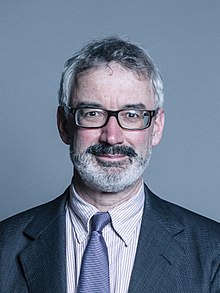Nicholas Macpherson – 2022 Speech on the Growth Plan (Baron Macpherson of Earl’s Court)
The speech made by Nicholas Macpherson, Baron Macpherson of Earl’s Court, in the House of Lords on 10 October 2022.
My Lords, there are some sensible policies in the Government’s growth plan. A better functioning supply side will enable higher growth of the economy—although I have a word of warning. Every Chancellor I served as Permanent Secretary announced reforms to the planning system—some announced them once a year. Announcing reforms is the easy part; making them stick is much harder.
I also congratulate the Chancellor on the senior team he announced today. I worked with James Bowler and Beth Russell over many years and under different Administrations. They are very able and represent all that is good in the Civil Service. Their appointment will be good for the Treasury’s credibility—and not before time, because credibility is hard won and easily lost, as the Chancellor has discovered in recent weeks.
Sacking a respected Permanent Secretary on day one can just about be dismissed as a little local difficulty, but choosing to announce the biggest giveaway since Anthony Barber’s in 1972 without involving the Office for Budget Responsibility was an elementary error. We now know that the OBR offered to produce a fiscal forecast, but the Chancellor declined. Investors want to understand the consequences for the public finances of major announcements and the OBR has provided considerable reassurance since George Osborne set it up in 2010. Perhaps if the Chancellor had engaged with the OBR he might have had second thoughts about the scale of his tax cuts, because injecting £45 billion into an economy facing chronic labour shortages and the highest inflation rate in 30 years is a risky strategy.
The Government are right to point out that the markets are fragile, but surely that is a time to move carefully. Bond yields had been rising since early summer but, as the markets began to digest the incoming Prime Minister’s programme, gilt yields rose faster in the UK than in the US and Europe. Again, that should have been a warning sign, but the Government chose to ignore it. The result is that the long-term cost of borrowing now stands at 4.7%—when I started writing these notes this morning, it stood at 4.3%. So the long-term yield is 210 basis points higher than at the beginning of August and, if sustained, will add over £40 billion to public spending in the long term.
Moreover, as the Bank of England Deputy Governor, Sir Jon Cunliffe, set out in a letter to the chairman of the Treasury Committee last week, yields rose considerably in the days following the Chancellor’s statement and, as we now know, the Bank of England had to intervene to calm the markets. When it comes to future meetings of the MPC, the Bank will have little choice but to raise interest rates more than it otherwise would, not least to protect the value of sterling. This is already putting pressure on mortgage rates and risks more than offsetting any growth effect of the mini-Budget.
It is not too late to put things right. I welcome the Chancellor’s announcement that he is bringing forward his Fiscal Statement to 31 October. This needs to include a credible plan to stabilise and then bring down debt as a share of the nation’s income. It needs to include credible public expenditure proposals. History suggests that writing in ever-bigger cuts to the benefits of poor people is simply not deliverable. If the Government cannot show how they will cut spending, they will need to revisit their tax proposals. This may be embarrassing but, unless the Government can restore economic credibility, the market response in the weeks ahead could be a whole lot worse than we have seen so far.

